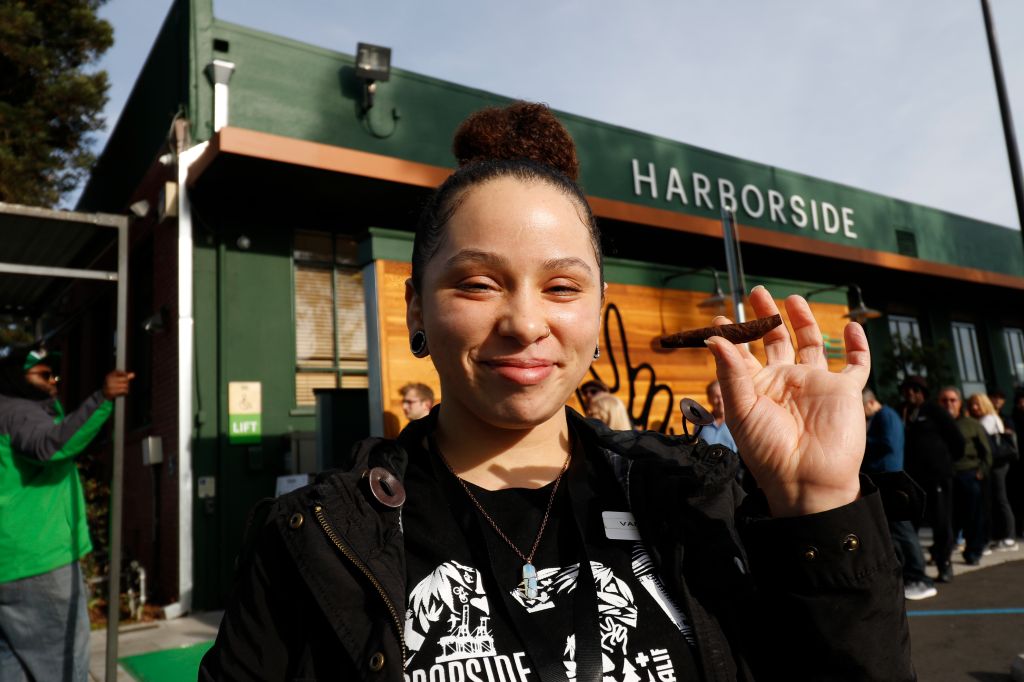Legal Weed: New York Pot Conviction Dismissals Not Mentioned By Cuomo
Will New York’s Recreational Weed Plan Ignore Marijuana Convictions?

Source: Stephenie Hollyman / Getty
The news that New York was aiming to fully legalize marijuana for recreational use by next year was met with a sigh of relief being collectively being exhaled by advocates who have long been lobbying for the legislation. But while Gov. Andrew Cuomo’s landmark announcement Monday made sure to cite how “African-American and minority communities” were often on the wrong end of low level and inconsequential marijuana arrests, his comments never mentioned anything about any sort of reparations for those same groups, according to reports.
“The fact is we have had two criminal justice systems: one for the wealthy and the well off, and one for everyone else,” the newly re-elected governor told legislators during his 2018 State of the State address in Albany. He continued: “Let’s legalize the adult use of recreational marijuana once and for all.”
The announcement may have been was surprising to those who have followed Cuomo’s stance on marijuana, which he just last year referred to as a “gateway drug.” He may have been convinced by his gubernatorial opponent, actor-turned-political activist Cynthia Nixon, whose pro-legalization stance shaped much of her ultimately losing campaign.
But that’s apparently where the marijuana agreement between two former political rivals began and ended.
While New York’s Department of Health issued a report this past summer about legalizing recreational use, including how full legalization would help “mitigate racial disparities in the criminal justice system,” there was reportedly no mention by Cuomo of any plans to dismiss any prior weed convictions.
Nixon, on the other hand, campaigned on full legalization as a vehicle for what she called “marijuana equity.” She said that not only included actively encouraging diversity within the budding industry, but also would be expunging “people’s records and following models similar to those created in places like Oakland, which sets aside half of its marijuana licenses for low-income residents who have been convicted of a marijuana-related crime or who live in a community targeted by the drug war.” The former “Sex And The City” star fully detailed her stance legal recreational marijuana in an op-ed she wrote for NewsOne in May.
Other cities in states where marijuana was fully legal have taken steps to dismiss prior weed convictions, including San Francisco, which announced earlier this year it would “throw out thousands of marijuana-related convictions of residents dating back to 1975.” One city in Michigan, where voters successfully cast midterm election ballots to fully legalize the plant, was reportedly debating how to prosecute pending marijuana cases.
While marijuana laws have been relaxed across the country, that hasn’t stopped the police from disproportionately targeting Black and brown people for marijuana arrests. In states that legalized pot, overall arrests declined but racial disparities have persisted.
New York City Mayor Bill de Blasio has supported leniency for possession of small amounts of marijuana. Yet 93 percent of the NYPD’s pot possession arrests involved Blacks and Hispanics, according to the Police Reform Project, an advocacy group that analyzed arrest data from the first three months of 2018.
If New York does end up fully legalizing marijuana use for adults, it would join 10 states and Washington, D.C.
SEE ALSO:
















